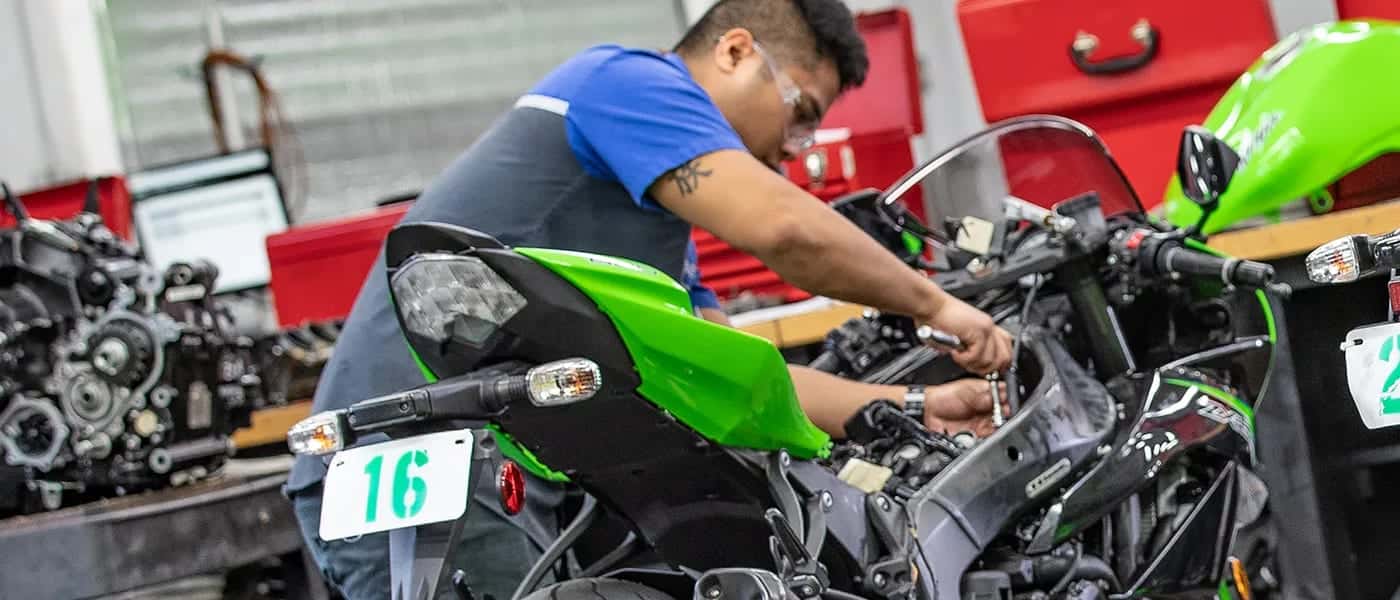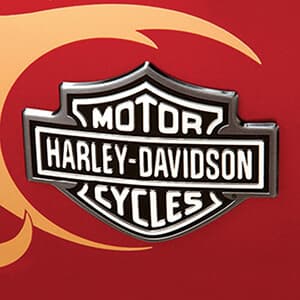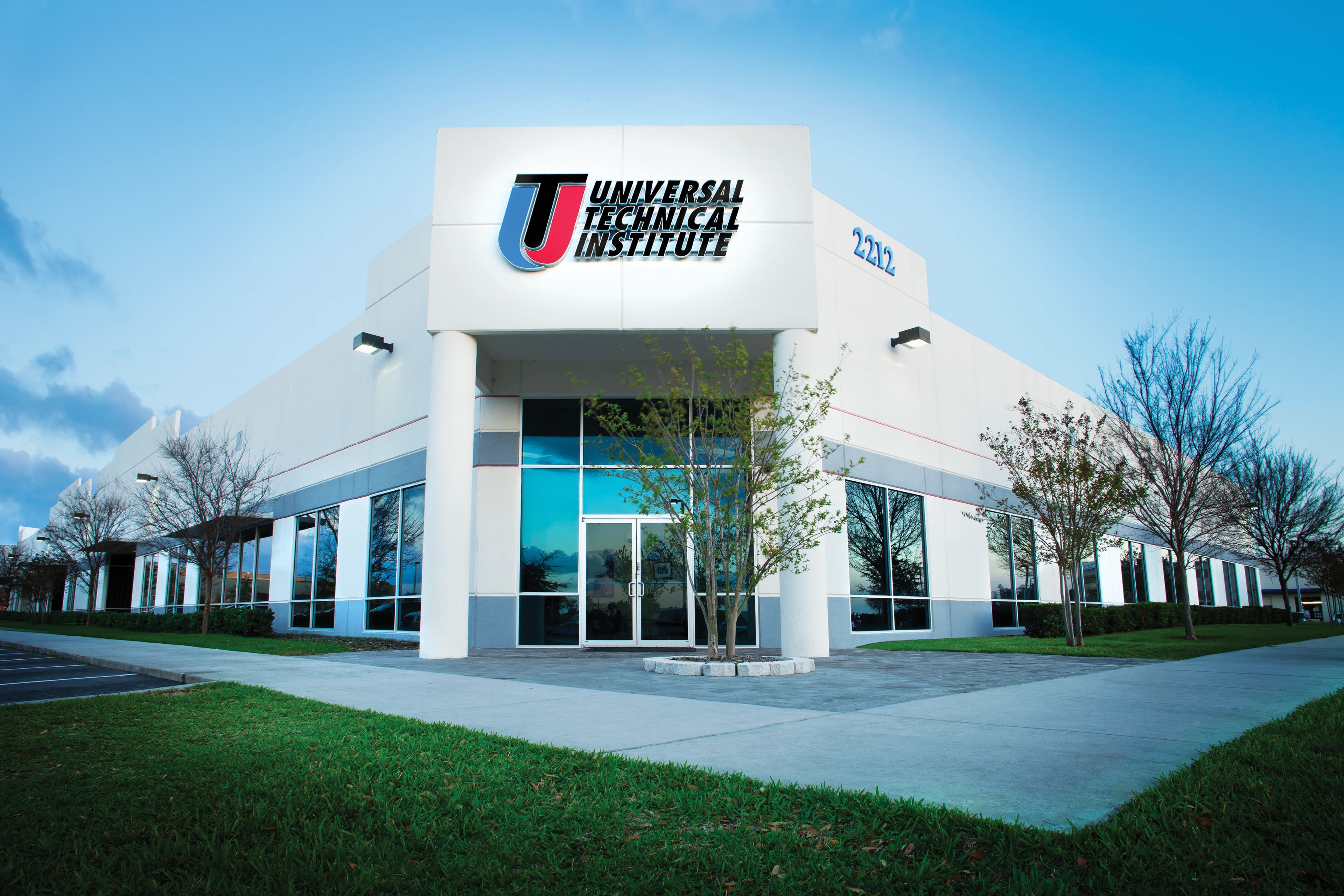MOTORCYCLE TECHNICIAN SCHOOL OVERVIEW
Learn foundational servicing skills needed to work on motorcycles, ATVs, powersports, side-by-sides and personal watercraft with our motorcycle and powersports program.1 Troubleshoot and diagnose engines, test performance and drivability, and receive specialized training with leading brands in the industry.
4 decades
6 OEM training opportunities
48 weeks
Where Are They Now: Graduate Stories
Elliott Deane is a dynamic leader, an entrepreneur, and Motorcycle Technician Training program grad.
John Maxwell graduated from motorcycle mechanic school at UTI, but you probably know him as "The Harley Tech" on YouTube.
5 REASONS TO CHOOSE UTI
- 1. Manufacturer-supported motorcycle mechanic programs provide the opportunity for graduates to be ready to work on major brands.
- 2. Relationships with BMW Motorrad, Harley-Davidson®, Honda, Kawasaki, Suzuki and Yamaha mean more potential opportunities.
- 3. Our industry connections ensure students receive hands-on training using state-of-the-industry technology and equipment.18
- 4. Our instructors are industry pros with extensive real-world experience.
- 5. Career-specific training can help students graduate quickly with skills that can prepare them to pursue a career.
TWO-STEP MOTORCYCLE MECHANIC TRAINING PROGRAM
STEP 1: COMPLETE YOUR CORE TRAINING
At UTI, you’ll start your motorcycle and powersports training with a strong core program that combines online course preparation and hands-on application. The Motorcycle Technician Prerequisite (MTP) portion of the program covers the key components of motorcycle technology and serves as a foundation for your professional development.
STEP 2: MOVE ON TO MANUFACTURER-SPECIFIC TRAINING CURRICULUMS
Train on the specific brands that meet your training and future career goals:Harley-Davidson
Honda: HonTech
Yamaha: YamaPro®
Suzuki: FAST*
Kawasaki: K-Tech Specialist
BMW Motorrad
*Only offered at our Phoenix campus in Arizona.
MOTORCYCLE MECHANIC TRAINING PROGRAM
Universal Technical Institute makes it easy to structure your training program as you prepare to pursue a career. You’ll get hands-on training on state-of-the-industry technology and equipment as you train to perform routine service, diagnose mechanical and electrical systems, and make necessary repairs and replacements.
Your first 18 weeks are spent learning the foundational knowledge of motorcycle technology with real hands-on education from instructors who collectively offer decades of industry expertise. From there, students move on to specialized training created with one or more of six leading manufacturers.
Motorcycle Training Certifications
Every motorcycle training program graduate receives a diploma, associate of occupational studies (AOS) degree or occupational associate degree (OAD), depending on the program and campus. They also earn brand-specific credentials with leading manufacturers, such as Harley-Davidson, Honda, Yamaha, Suzuki, Kawasaki or BMW, by completing our manufacturer-specific training. Upon program completion, they can qualify to pursue a career with those brands.

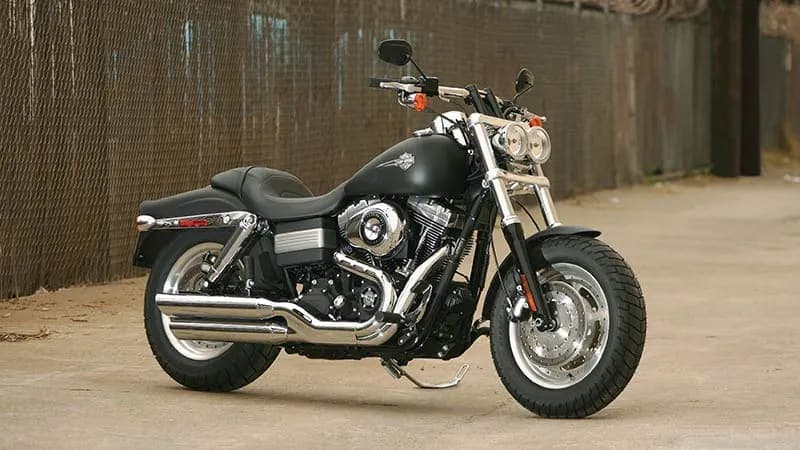

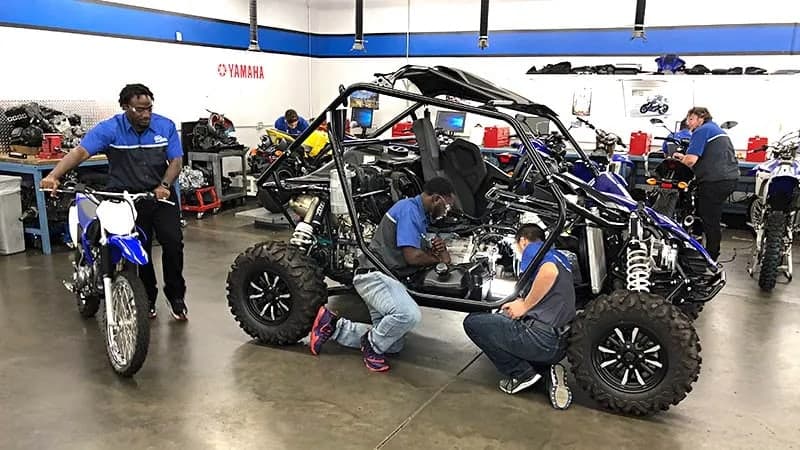

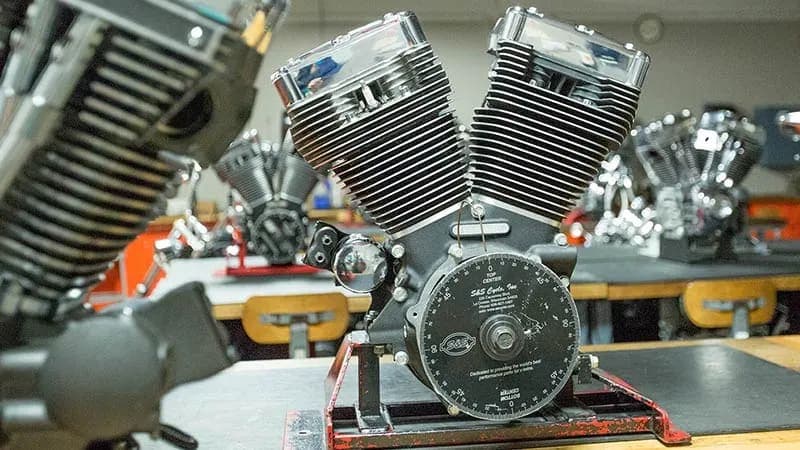
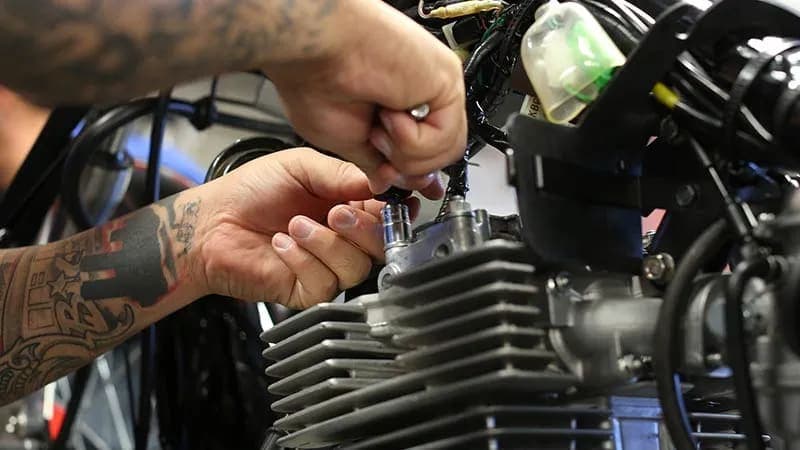
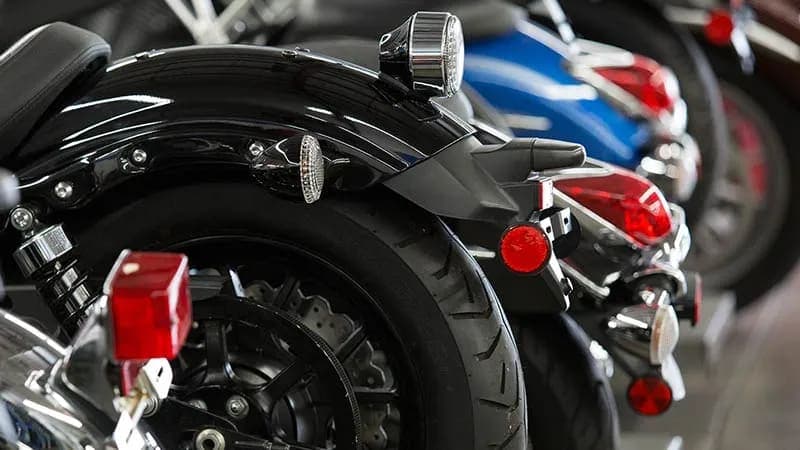
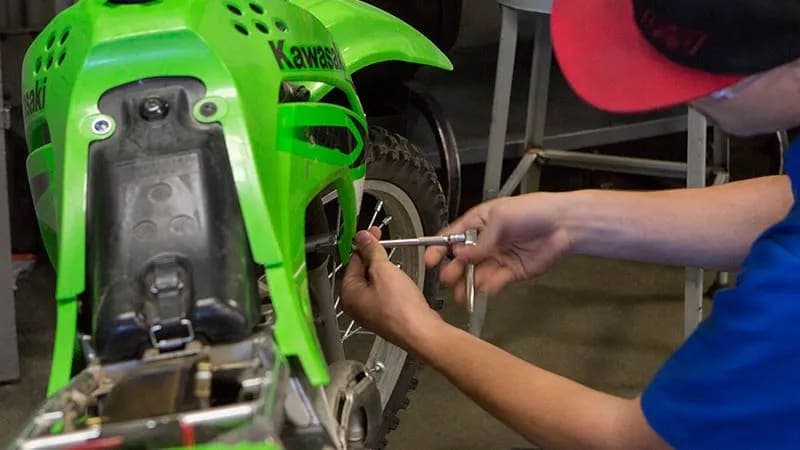

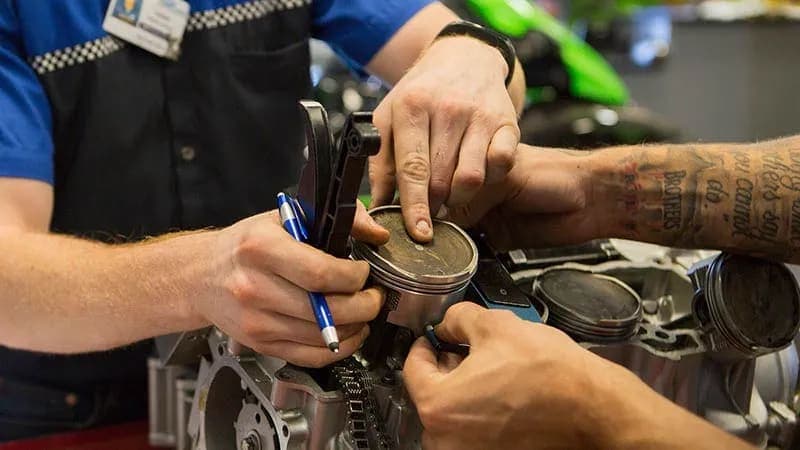
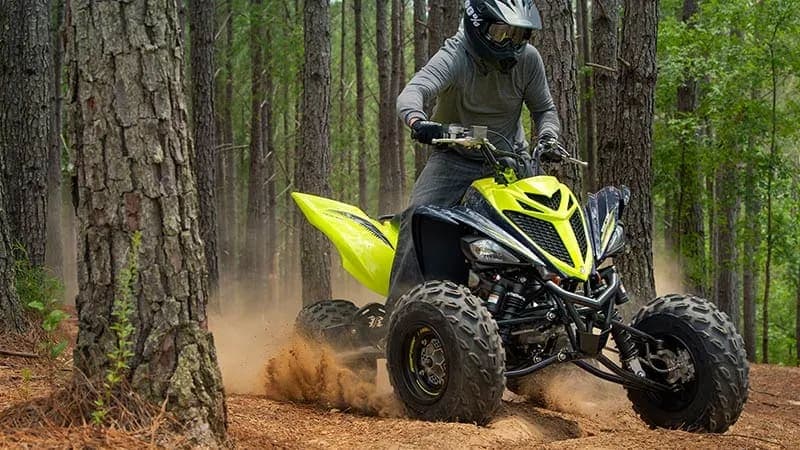
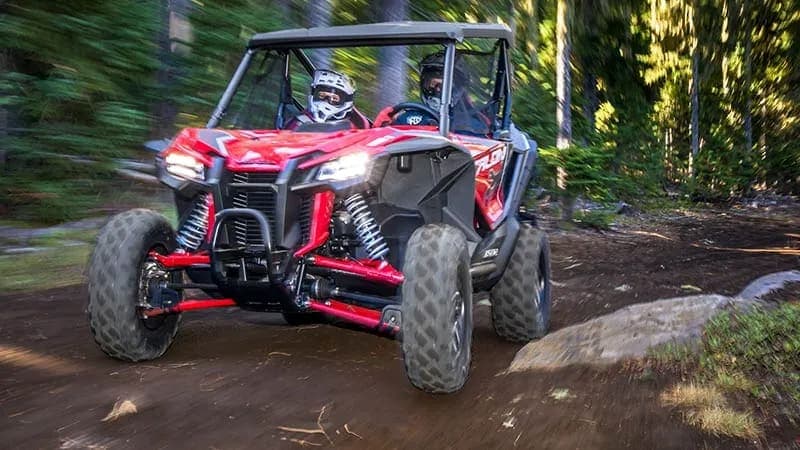
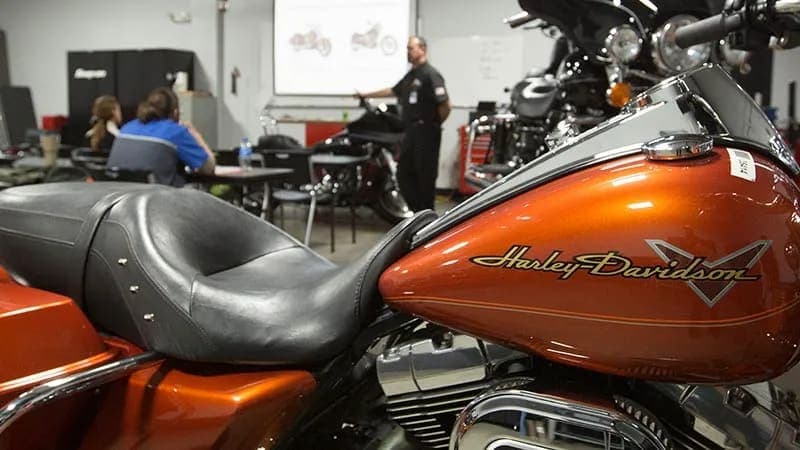
MOTORCYCLE MECHANIC SCHOOL CLASSES
Click the links below to read descriptions of the courses offered at Universal Technical Institute.
SPECIALIZED MOTORCYCLE MECHANIC TRAINING
Ever dream of mastering Harley-Davidson engines or becoming an expert in servicing Honda motorcycles? This is where you can prepare to start making it happen! Specialized motorcycle tech training lets students train on six of the industry’s leading brands for motorcycles, ATVs, powersports vehicles, side-by-sides and personal watercraft.
Click on the images below to learn more about our manufacturer-specific training.
MOTORCYCLE MECHANIC SCHOOL LOCATIONS
FREQUENTLY ASKED QUESTIONS
To become a motorcycle mechanic, specialized programs like UTI’s Motorcycle Technician Training program prepare students for the field.1 The program covers foundational knowledge of motorcycles, ATVs and watercraft, including diagnosing engines and testing performance. Training begins with a Motorcycle Technician Prerequisite (MTP) curriculum that combines online lectures and hands-on labs, serving as a foundation for professional growth.
Students then move on to their chosen manufacturer-specific curriculums for Harley-Davidson, Suzuki, Honda, Kawasaki, Yamaha or BMW Motorrad.
Becoming a motorcycle mechanic typically requires a high school diploma or GED and completing specialized training, such as our Motorcycle Technician Training program.1 This program provides hands-on training with industry-aligned tools and offers opportunities to connect with top manufacturers and employers.
Great motorcycle mechanics possess a passion for the industry, dexterity to handle intricate parts, and strong technical knowledge to diagnose and repair effectively. Excellent communication skills are also essential to explain repairs and address customer concerns.
You can complete your motorcycle mechanic training in just 48 weeks at UTI.7 View our motorcycle mechanic courses here.
The cost of completing your motorcycle training at UTI depends on a variety of factors. Some students are eligible to use grants and scholarships to pay for school,10 while others take out loans to be repaid.
At Universal Technical Institute, we understand that every student’s financial situation is unique. Our Financial Aid office can help you explore your options, fill out the Free Application for Federal Student Aid (FAFSA) and more.
According to the Bureau of Labor Statistics (BLS), the median annual salary for motorcycle mechanics in the United States was $47,200 in May 2024.30 This means half of motorcycle technicians earned more and half earned less. Keep in mind that salary depends on several factors, including experience, employer, demand and cost of living in the area. Learn more in our motorcycle mechanic salary guide.
Yes! UTI is the only trade school that offers a Harley-Davidson-specific 30-week OEM training program, which must follow completion of our 18-week Motorcycle Technician Prerequisite (MTP) curriculum. Visit our Harley-Davidson program page to learn more.

